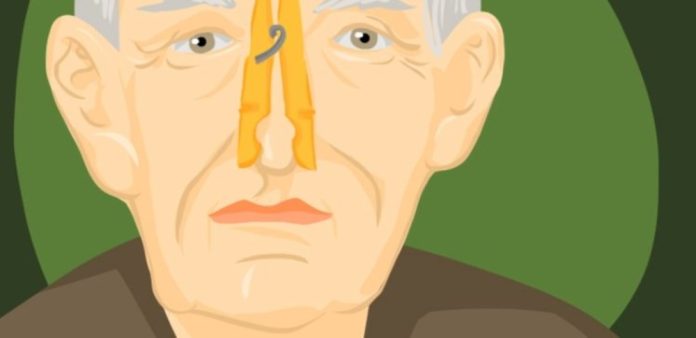The respect and affection we hold for our elders are undeniable, but aging is accompanied by various transformations, extending beyond just wisdom. One such change is the emergence of a unique body odor, often colloquially referred to as “old people smell.” While the term may lack charm, scientific research confirms its existence. This distinct aroma, characterized by a slightly musty quality with hints of oil or grease, emanates from the pores and is linked to the aging process.
The Science Behind “Old People Smell”:
This olfactory phenomenon is associated with a compound called 2-nonenal. As we age, shifts in hormone levels lead to an increased production of fatty acids in the skin. Unfortunately, as we grow older, our antioxidant levels decrease, making these fatty acids more prone to oxidation, resulting in the heightened production of nonenal. What’s intriguing is that this odor can persist on the skin even after thorough washing and predominantly emanates from the chest and back regions.
Several factors can intensify this unique aroma. It tends to be more pronounced in confined spaces, when clothing isn’t adequately cleaned, or when dehydration is an issue. Moreover, certain illnesses and medications may also contribute to the prevalence of this odor. A study from 2001, published in the Journal of Investigative Dermatology, discovered that elderly subjects had a higher concentration of nonenal clinging to their clothing.
A more recent study from 2012 suggests that humans may possess an innate ability to discern the scent of older individuals from others, possibly connected to an ancestral or evolutionary instinct. Just as animals can determine age and health status through scent, it appears that humans may have a similar capability.
Efforts to Combat “Old People Smell”:
In Japan, where this phenomenon is known as “kareishu,” various companies have developed products designed to combat it. These include body washes, perfumes, and deodorizers that claim to neutralize the odor. One particular ingredient, persimmon, is reputed to completely eliminate the scent from the skin.
However, individuals can also take certain steps to mitigate the issue at its source. Regular exercise, for instance, can help maintain hormonal balance and reduce stress, thereby minimizing the production of nonenal. Another crucial step is regular laundering of clothes, as nonenal can accumulate on fabric. A diet rich in antioxidants and ample hydration can aid in maintaining healthy skin, as dehydration can lead to odors emanating from both the mouth and body.
Conclusion:
While the inevitability of aging is unquestionable, displaying compassion, respect, and love for our elders remains timeless. The science behind “old people smell” sheds light on the intriguing changes that occur as we age. It is a reminder that our bodies evolve over time, and while specialized products offer potential solutions, simple practices such as maintaining hygiene, staying active, and embracing a healthy lifestyle can go a long way in ensuring that the natural process of aging is accompanied by grace and dignity.
image source : tip hero










